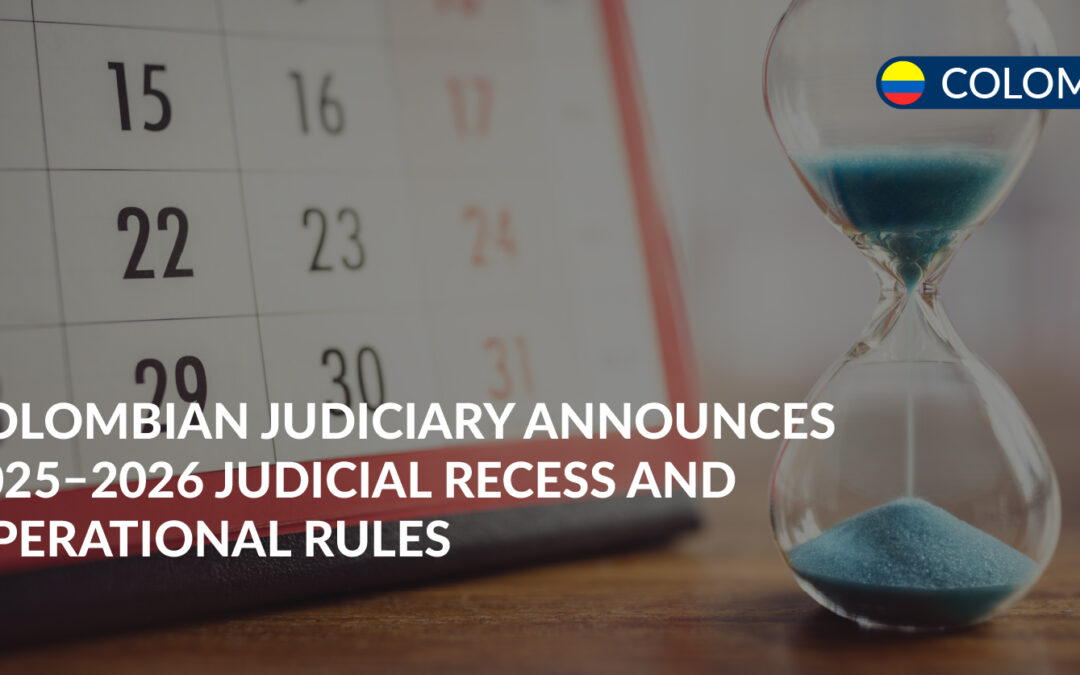While preparing a slideshow on Business Affairs and Clearance for a conference we gave to some colleagues at the beginning of this year at the Interamerican Association for Industrial Property, ASIPI, we came across with the task of putting together some tips gathered from our experience in the business. We want to share these tips in the hopes of contributing to an amiable, well-informed audiovisual production industry in Colombia.
It is worth noting that our clients have never been sued for breach of contract or clearance matters when we have advised the production. We might have just been lucky and, even after having given the best legal advice, we have had a couple of pre-litigation issues as those hassles are almost unavoidable. We have in any case prevented litigation and been able to solve them.
Nevertheless, we want to share some tips, for both Producers coming to Colombia to shoot, or Producers from Colombia executing Product Service Agreements, that may come in handy to them when facing the production phase of an audiovisual project:
- The PSA is a big part of the discussion, so take your time and be realistic about the market in which you’re producing; creating loads of paperwork as a requirement for local producers is not necessarily the best approach. Instead, focus on who your partner in Colombia is and provide guidelines that are reachable and easy to understand, and also explainable, to vendors, cast, crew etc.
- Understand how contracts will be complied with. A big part of the prevention part that we have accomplished comes from the understanding of both producers and counterparts of how the contract is going to be complied with and why we include certain clauses.
- Apply an international approach, but do understand how local courts and people in Colombia think. This means adapting formats and guidelines to the fact that contracts are going to be interpreted locally in good faith and reasonably, even in spite of the specific or precise terms.
- Other than audits on money and your compulsory legal deliveries, follow your local producer’s guidelines on labor matters and how to handle vendors. Labor law in Colombia protects workers and, in some cases, service providers, by extending contracts, particularly, but not limited to, pregnancy. Labor law specialists have designed most of the local producers’ policies, so such policies will come in hand, but only if they are followed. Also, some vendors do not work within the Entertainment business, so there are a lot of first timers that will ask a lot of questions and will refrain from signing typical contracts. Be patient, but make space for this in your agenda, and be prepared in time.
- Beware of public policy, given most of this golden era Colombia is experiencing in Entertainment comes from public policy. So, if you do not keep up, you won’t be able to handle sudden changes appropriately.
- Agree on arbitration when possible. Due to some Colombian idiosyncrasies, if you elect a foreign law as applicable and do not choose arbitration, you will end up having costly debates at courts if litigation arises.
- Do Clearance, even with a foreign Clearance provider –or a local one as us– but certainly, do it. Since Clearance is new for some parts of the industry, if you are not committed to do it, you will find a lot of “issues” will need to be corrected at the post-production stage.
- Last, but not least, our job as lawyers, beyond checking and analyzing the legality for developing the audiovisual production, is understanding the particularities and needs of the entertainment industry in order to provide our clients the best advice, always thinking ahead and facilitating the execution of their project following business rules but keeping the big picture in mind; what really matters, is making the movie.









